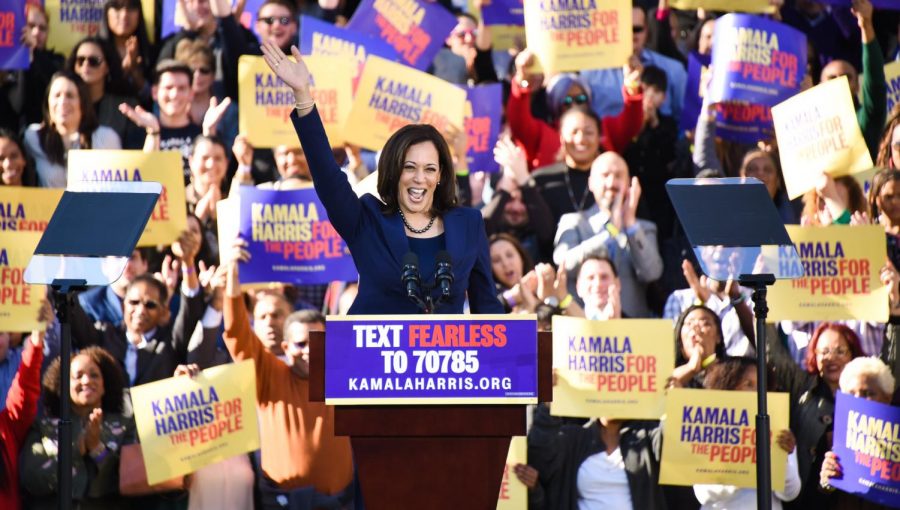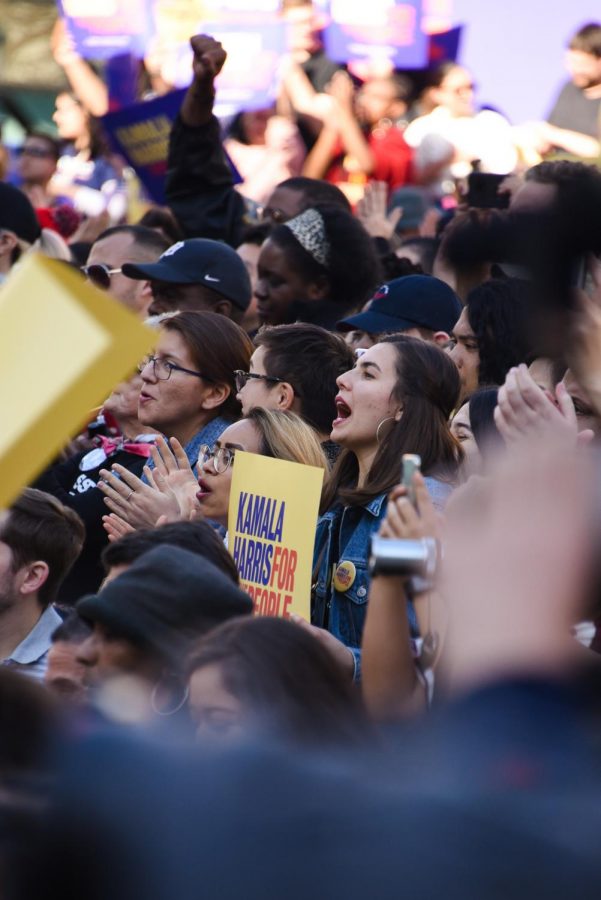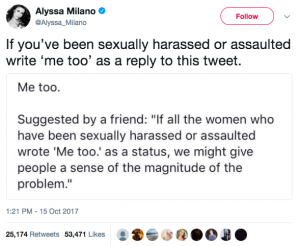Editorial: Female president could fuel culture shift
Sen. Kamala Harris (D.-Calif.) waves to a crowd in her hometown, Oakland, to officially announce her 2020 presidential bid.
February 24, 2019
In the recent weeks, a number of Democrats have announced their bids for the 2020 presidential election, hoping for a chance to lead the party and oust the current administration. Although the race is still in its infantile stages, about half of the current candidates are women.
According to a February poll from Quinnipiac University, California senator Kamala Harris is the current female Democratic frontrunner with support from 58 percent of state voters. Born to an Indian mother and Jamaican father, Harris grew up going to a Hindu temple and singing at a Baptist choir. Her multiethnic identity and experience as a first-generation woman symbolize the “melting pot” culture of the U.S.
She is accompanied by other women in the Democratic primary including New York Senator Kirsten Gillibrand and Massachusetts Senator Elizabeth Warren. The country is evidently making strides with female representation in politics as there were only three total female presidential nominees in the 2016 primaries, a large difference from today’s six in just a single one.
The country needs more female representation in a time when global culture is transforming to launch movements such as #MeToo, which has shed a light on sexual harassment from Hollywood to the Catholic Church. In a time when toxic masculinity is finally being met with resistance and “just locker room talk” is no longer considered a valid excuse for harassment, the federal government must let all voices be heard, respected and acted upon.
Change will happen whether or not a female president is elected in 2020. A female president — whether it be Harris, Gillibrand, Warren or any other potential competitor — will be a huge step forward for the country’s existing disparity problem in politics. But more importantly, she could catalyze an ongoing national and global culture change that would promote justice and opportunity for all people.
This piece was originally published in the pages of The Winged Post on February 20, 2019.


















![“[Building nerf blasters] became this outlet of creativity for me that hasn't been matched by anything else. The process [of] making a build complete to your desire is such a painstakingly difficult process, but I've had to learn from [the skills needed from] soldering to proper painting. There's so many different options for everything, if you think about it, it exists. The best part is [that] if it doesn't exist, you can build it yourself," Ishaan Parate said.](https://harkeraquila.com/wp-content/uploads/2022/08/DSC_8149-900x604.jpg)




![“When I came into high school, I was ready to be a follower. But DECA was a game changer for me. It helped me overcome my fear of public speaking, and it's played such a major role in who I've become today. To be able to successfully lead a chapter of 150 students, an officer team and be one of the upperclassmen I once really admired is something I'm [really] proud of,” Anvitha Tummala ('21) said.](https://harkeraquila.com/wp-content/uploads/2021/07/Screen-Shot-2021-07-25-at-9.50.05-AM-900x594.png)







![“I think getting up in the morning and having a sense of purpose [is exciting]. I think without a certain amount of drive, life is kind of obsolete and mundane, and I think having that every single day is what makes each day unique and kind of makes life exciting,” Neymika Jain (12) said.](https://harkeraquila.com/wp-content/uploads/2017/06/Screen-Shot-2017-06-03-at-4.54.16-PM.png)








![“My slogan is ‘slow feet, don’t eat, and I’m hungry.’ You need to run fast to get where you are–you aren't going to get those championships if you aren't fast,” Angel Cervantes (12) said. “I want to do well in school on my tests and in track and win championships for my team. I live by that, [and] I can do that anywhere: in the classroom or on the field.”](https://harkeraquila.com/wp-content/uploads/2018/06/DSC5146-900x601.jpg)
![“[Volleyball has] taught me how to fall correctly, and another thing it taught is that you don’t have to be the best at something to be good at it. If you just hit the ball in a smart way, then it still scores points and you’re good at it. You could be a background player and still make a much bigger impact on the team than you would think,” Anya Gert (’20) said.](https://harkeraquila.com/wp-content/uploads/2020/06/AnnaGert_JinTuan_HoHPhotoEdited-600x900.jpeg)

![“I'm not nearly there yet, but [my confidence has] definitely been getting better since I was pretty shy and timid coming into Harker my freshman year. I know that there's a lot of people that are really confident in what they do, and I really admire them. Everyone's so driven and that has really pushed me to kind of try to find my own place in high school and be more confident,” Alyssa Huang (’20) said.](https://harkeraquila.com/wp-content/uploads/2020/06/AlyssaHuang_EmilyChen_HoHPhoto-900x749.jpeg)











